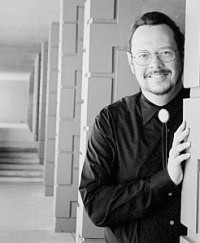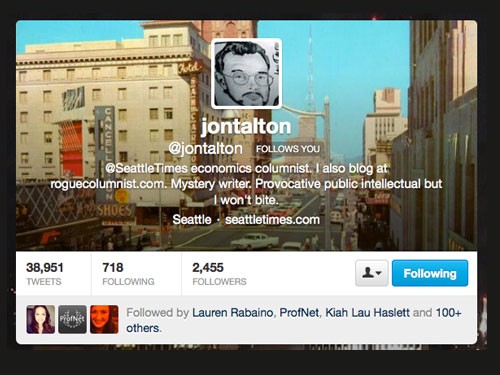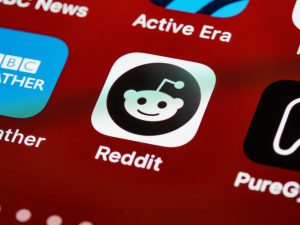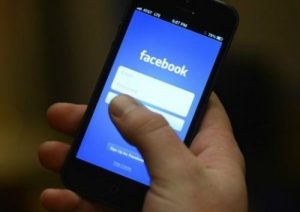I was always an early adopter. My first blog began in 1998, although I think the term is out of date for what are online columns. When social media came along, I signed right up.
My experiences have been uneven at best. I’d love to hear from other journalists in the comments field. Remember one of my precepts: I don’t have all the answers.
Twitter (@jontalton) is most useful to me as a journalist and writer. I use it to promote (“share”) my columns and posts at the Seattle Times, my work on Rogue Columnist and news about my novels. I often get retweeted, although not necessarily what, to me, are the best columns.
I “live tweet” certain compelling news events, from meetings and luncheon speakers to presidential debates. In the latter, for example, I kept a running commentary of falsehoods, context and questions.
Twitter is the closest thing in the digital world to the old AP or UPI tickers. It’s a great feed of breaking news, with an important caveat. That being: Is the news being reported by a reputable journalist or being corroborated by others? If not, hold fire. I hesitate to immediately retweet the sensational. It can often prove wrong.
I follow a coven of economists, Federal Reserve banks and think tanks. These can provide important heads up for useful news and research, great insights or fuel to my insecurities and small-minded jealousy of great talent.
“Twitter is the closest thing in the digital world to the old AP or UPI tickers.”
I also follow journalists I admire. Any journalist who follows me, gets a courtesy follow back. Who I don’t follow: People who tweet about walking their dogs, etc. Twitter is part of my work. I need it to be useful. I already follow too many to keep up with.
I am not a Twitter star, although Twitter has now officially validated my location. At the moment, I have 2,446 followers and each one has been hard earned. My advice is not to obsess over your followers: Some will come and go. Do your best work and readers will find you. I also don’t claim the expertise to know the best SEO. One prejudice: Don’t overuse hash-tags.
Retweeting is something I reserve for the best work I see, and even this I try to do with discipline. I don’t want to douse my followers. Here, I am being an editor, a (gasp!) gatekeeper in a good way. Sometimes I get in conversations, playing off another tweet. My goal is to add some value or call out an incomplete or false story. Always be civil.
Facebook is different. I post my columns and this usually gets a strong response (I have 1,139 “friends”). I also use it for updates on book news. But it is of limited utility for journalism, except as an entity to cover (like Twitter, too). | You might find other models here at the Facebook + Journalists group page.
On a personal level, it has allowed me to reconnect with friends going back to elementary school. But most of my “friends” aren’t. As a public figure, I feel obliged to accept any friend request from someone who 1) has a real “about” bio, and, generally, 2) has some mutual “friends.” The large following helps me spread the word about my work.
My Space, Pinterest, Google+, Instagram, Tagged — who has the time? Social networking can be a dangerous distraction from committing quality journalism: Talking to real people, thinking, planning, etc.
Has any journalist gotten a job from LinkedIn? Not me. But I do have 500-plus “connections,” and some are good sources.
None of these platforms has proven useful for “crowdsourcing” a story. Perhaps that’s just my beat. Twitter, especially, is probably better for breaking news.
What has your experience been?
Leave Jon a note below in comments of shoot him your thoughts on Twitter: @JonTalton. We like to use the hashtag #BizJ to show the conversation started here and make it easier to follow.











